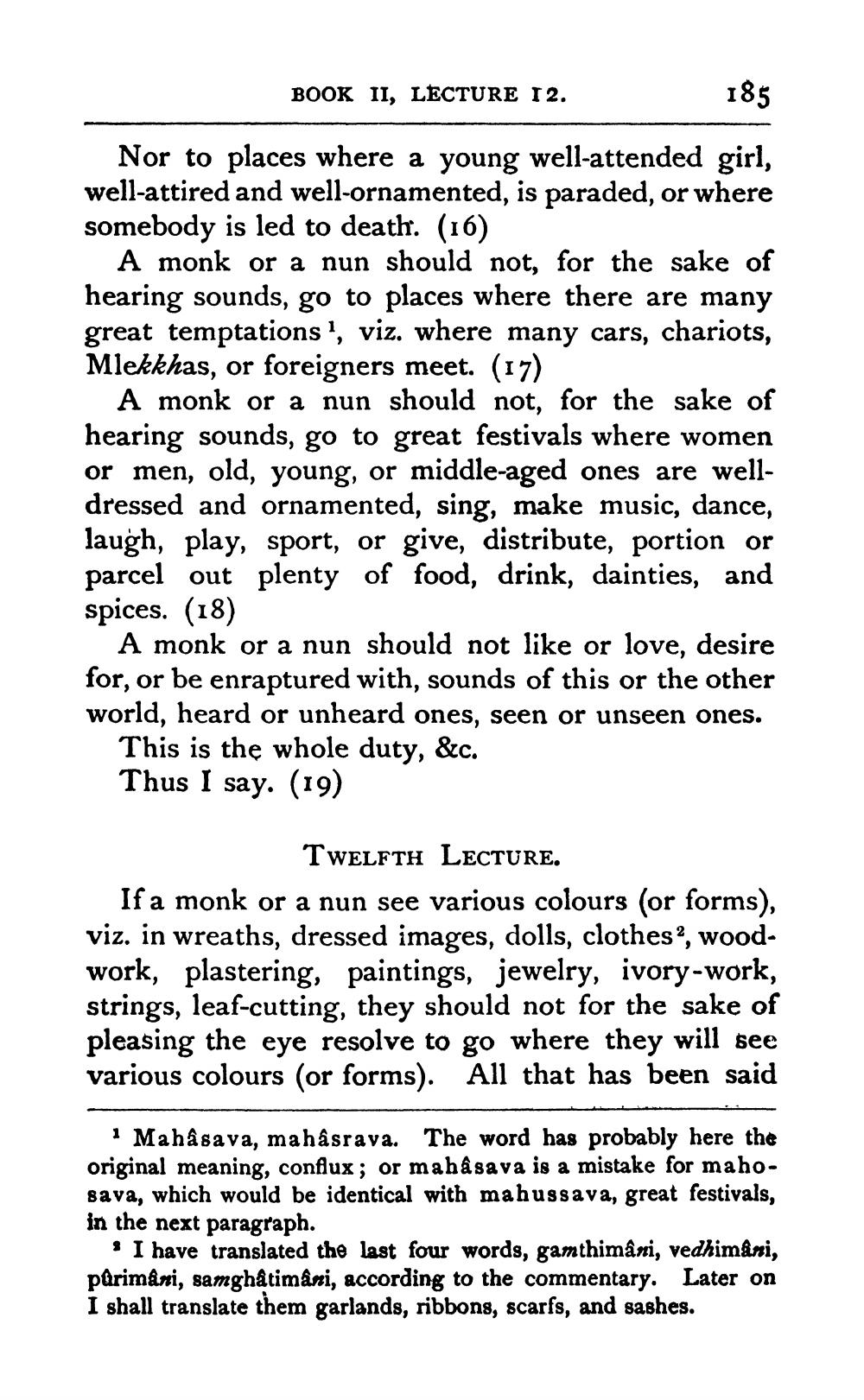________________
BOOK II, LECTURE 12.
185
Nor to places where a young well-attended girl, well-attired and well-ornamented, is paraded, or where somebody is led to death. (16)
A monk or a nun should not, for the sake of hearing sounds, go to places where there are many great temptations, viz. where many cars, chariots, Mlekkhas, or foreigners meet. (17)
A monk or a nun should not, for the sake of hearing sounds, go to great festivals where women or men, old, young, or middle-aged ones are welldressed and ornamented, sing, make music, dance, laugh, play, sport, or give, distribute, portion or parcel out plenty of food, drink, dainties, and spices. (18)
A monk or a nun should not like or love, desire for, or be enraptured with, sounds of this or the other world, heard or unheard ones, seen or unseen ones.
This is the whole duty, &c. Thus I say. (19)
TWELFTH LECTURE. If a monk or a nun see various colours (or forms), viz. in wreaths, dressed images, dolls, clothes, woodwork, plastering, paintings, jewelry, ivory-work, strings, leaf-cutting, they should not for the sake of pleasing the eye resolve to go where they will see various colours (or forms). All that has been said
Mahâsava, mahasrava. The word has probably here the original meaning, conflux; or mahâsava is a mistake for mahosava, which would be identical with mahussava, great festivals, in the next paragraph.
• I have translated the last four words, gamthimâni, vedhimâni, parimâri, samghatimâri, according to the commentary. Later on I shall translate them garlands, ribbons, scarfs, and sashes.




